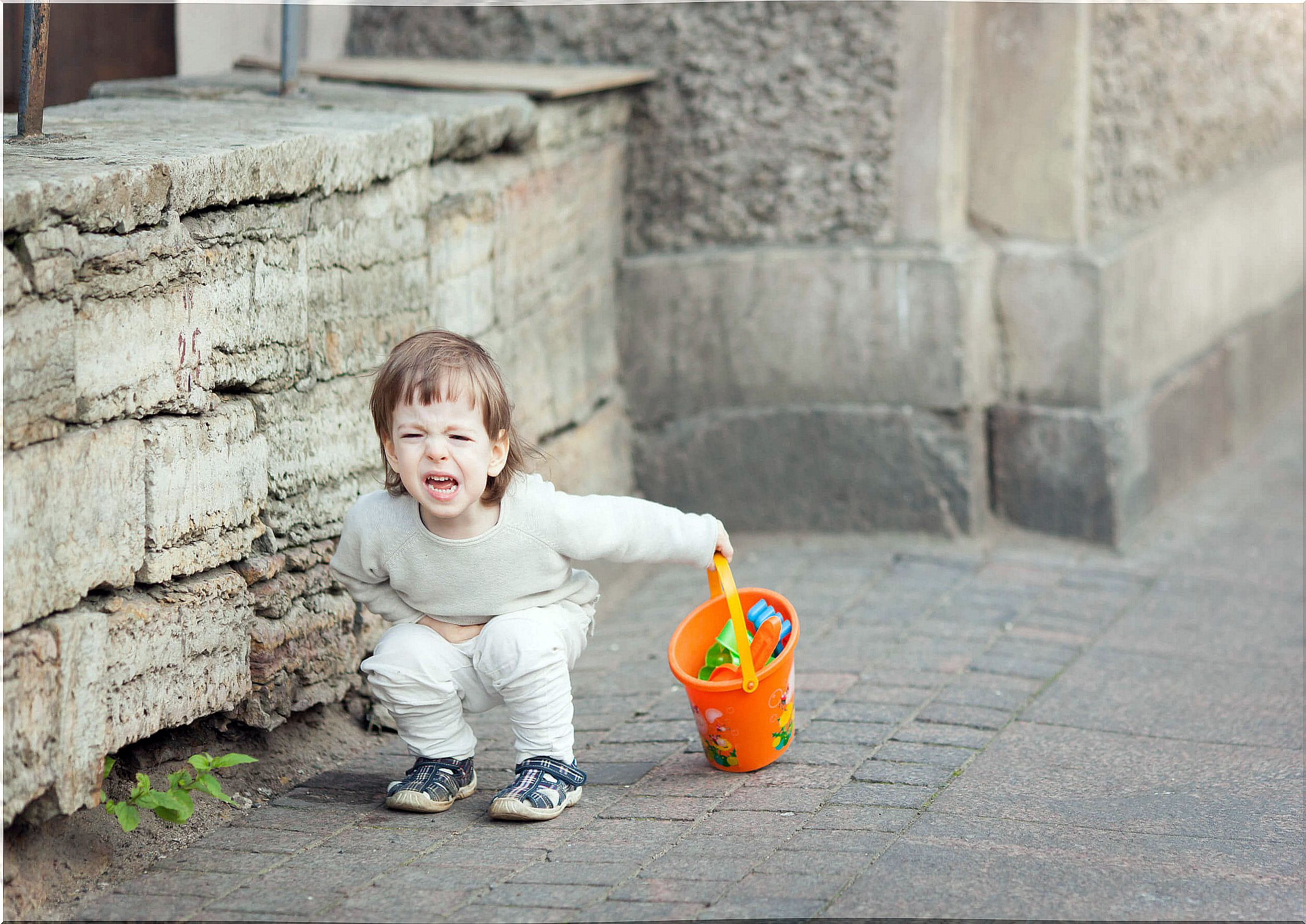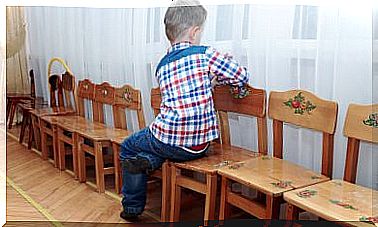Calming Children’s Tantrums According To Montessori

If you are a father or mother, you will know very well that boys and girls have tantrums, just like teenagers and even adults. Although, of course, they are not the same tantrums that a young child has as a teenager or a person of a certain age. That is why it is so important to appease them and we are going to explain how to calm children’s tantrums according to Montessori.
When a child learns early that their emotional peaks can calm down, they will learn better self-regulation in the future. Tantrums are a clear sign of low tolerance for frustration. Parents have tools to help our children not to worsen their emotional state.

Learn to calm children’s tantrums according to Montessori
To calm children’s tantrums according to Montessori, you must first know that it is a methodology that focuses on respecting the child, as well as taking into account their evolution and learning capacity at all times.
María Montessori defended the accompaniment of children for their learning ; adults should be your guides from the deepest love and respect. They must be given the space they need so that, through exploration, the little ones learn through their own resources, as long as the adult is present and is their guide.
Mistakes are the great teachers, and emotions and feelings … This is essential when you want to manage tantrums in children. These can alter the emotional state of the parents, but it is essential to remain calm to be a good guide for the little one who needs to learn to control his most intense emotions.
Tantrums often appear when children want to have something and cannot. The low tolerance to frustration (natural in the younger ages) makes an appearance in the form of exaggerated anger that the child is not able to control himself.
If the parents guide the little one in these moments so delicate and important for their learning, then, the child will be able to learn to control these emotional peaks and in the future he will successfully self-regulate. You will have stronger self-esteem and great self-confidence! But how do you get it?
From respect, a sincere hug
Perhaps you also have somewhat overwhelmed emotions if your little one is having an intense crisis: anger and fatigue appear within you. But you must understand that in order to bring calm to your child, you must be calm as well. If you feel bad, take a deep breath and don’t handle the situation until you feel like you can do it out of respect.
Show your child empathy and never yell, scold, or have aggressive behavior. In this way, you will give him an adequate space for that explosion of feelings and, later, through a sincere hug, you will calm that emotion that has taken over his being.
What does he tell you with that tantrum?
All tantrums go with a message behind; the child is telling you without words that he has a need that he has not met. In this sense, it is important that you are an active observer and that you allow your little one to nod your head to the questions you ask about what he may be needing. Maybe you just need help with something or a hug.
Speak when calm comes
Talk to your child when he has calmed down, but never before. To calm children’s tantrums according to Montessori, listen to everything he has to say to you and allow him to express himself confidently towards you. Talk to him and ask him short questions that he can answer about his anger. Tell him that you understand and understand him, but that it is not a reason for him to act negatively.
Don’t get defensive
Under no circumstances be defensive when your child has a tantrum. Look at him with compassion, knowing that he needs something and that you can help him. Be humble, don’t feel like a higher being, just a guide you need to better understand your environment and your inner self.

To do this, to calm children’s tantrums according to Montessori, speak with a calm voice. The empathy you show your child will automatically calm him down and, if his body is tense with anxiety, he will also relax. Put yourself in their place, look from their eyes, and you will see a totally different world.
To calm tantrums according to Montessori, never judge him
Never judge him, or criticize him, much less insult him. Crying and feeling sad is not a bad thing, in fact, it is necessary to recognize these emotions in order to regulate them in the future.
In short, teach your child to understand emotion so that, in the future, he knows how to express how he feels without reaching an angry state.










